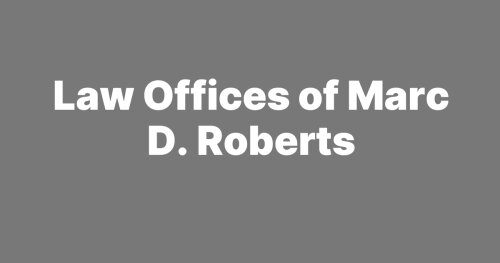Best Drunk Driving Lawyers in Kansas
Share your needs with us, get contacted by law firms.
Free. Takes 2 min.
Or refine your search by selecting a city:
List of the best lawyers in Kansas, United States
About Drunk Driving Law in Kansas, United States
Drunk driving, commonly referred to as DUI (Driving Under the Influence), is a serious criminal offense in Kansas. The state enforces some of the strictest DUI laws in the United States to protect the public from impaired drivers and reduce accidents caused by alcohol consumption. In Kansas, it is illegal to operate a motor vehicle if your blood alcohol concentration (BAC) is at or above 0.08 percent for drivers 21 and older, 0.04 percent for commercial drivers, and 0.02 percent for drivers under 21. In addition to alcohol, being impaired by illegal drugs or prescription medications can also lead to DUI charges.
Why You May Need a Lawyer
Facing a DUI charge in Kansas can have serious implications, including criminal penalties, loss of your driving privileges, and increased insurance costs. You may need a lawyer if:
- You are arrested for DUI and unsure how to proceed
- You face repeat DUI offenses which could lead to felony charges
- You believe the police made mistakes during your arrest or testing
- You are facing loss of your commercial driver’s license or job
- The case involves accidents, injuries, or fatalities
- You need to request or prepare for a DMV hearing
- You want to seek alternative sentencing or diversion programs
- You are concerned about long-term effects on your record
A lawyer can help by reviewing the evidence, exploring potential defenses, negotiating with prosecutors, and representing you in court and administrative hearings.
Local Laws Overview
Kansas has comprehensive DUI laws that include both criminal charges and administrative penalties. Here are some of the key aspects:
- Legal Limits: BAC of 0.08 percent or higher for regular drivers, 0.04 percent for commercial drivers, and 0.02 percent for drivers under 21.
- Implied Consent Law: By driving in Kansas, you give implied consent to submit to chemical testing. Refusing to take a breath, blood, or urine test can result in license suspension and additional penalties.
- Penalties: First-time offenders may face up to six months in jail, fines, license suspension, and mandatory alcohol education. Penalties increase with additional offenses.
- Administrative Actions: Your driving privileges can be suspended by the Kansas Department of Revenue, independent of the criminal charges.
- Ignition Interlock Devices: Convicted drivers may be required to install and maintain an ignition interlock device on their vehicles.
- Diversion Programs: In some cases, first-time offenders may qualify for diversion programs which help avoid a conviction if all conditions are met.
Frequently Asked Questions
What is considered a DUI in Kansas?
A DUI in Kansas means operating or attempting to operate a vehicle while under the influence of alcohol, drugs, or a combination of substances that impair your ability to drive safely. A BAC at or above 0.08 percent is typically sufficient for a DUI charge.
Can I refuse a breathalyzer or blood test?
You can refuse chemical testing, but doing so violates Kansas’s implied consent law. Refusal results in immediate administrative license suspension and may carry additional penalties in court.
What happens to my driver’s license after a DUI arrest?
Upon arrest, your license may be subject to an administrative suspension by the Kansas Department of Revenue. You have a limited time to request a hearing to contest the suspension.
What are the penalties for a first-time DUI offense in Kansas?
Penalties can include up to six months in jail, fines ranging from $750 to $1,000, mandatory alcohol education, and license suspension. Additional penalties such as an ignition interlock device may also apply.
Will a DUI stay on my record?
A DUI conviction will remain on your Kansas criminal record. Expungement may be possible under certain conditions, usually after several years have passed without re-offending.
Am I eligible for a diversion program?
First-time offenders may be eligible for diversion, which is an alternative to prosecution. Successful completion of the program can result in the dismissal of charges, though not everyone qualifies.
Are out-of-state drivers subject to Kansas DUI laws?
Yes, anyone driving in Kansas, including out-of-state drivers, must comply with Kansas DUI laws and is subject to prosecution if arrested for DUI in the state.
Can I drive after a DUI conviction?
If your license is suspended or revoked, you cannot legally drive until reinstatement. In some cases, you may qualify for a restricted license, usually with the installation of an ignition interlock device.
What if I am a commercial driver?
Commercial drivers face stricter BAC limits (0.04 percent) and harsher penalties, including longer disqualification periods even for a first offense.
Do I need a lawyer if I want to plead guilty?
Even if you plan to plead guilty, a lawyer can help ensure you understand the consequences and may help negotiate reduced charges, lighter penalties, or alternative sentencing.
Additional Resources
Here are some helpful Kansas resources and organizations for those seeking information or assistance related to drunk driving:
- Kansas Department of Revenue - Division of Vehicles
- Kansas Judicial Branch
- Kansas Highway Patrol
- Kansas Bar Association
- Local county public defender’s office
- Alcoholics Anonymous - Kansas area chapters
- Mothers Against Drunk Driving (MADD) - Kansas chapter
Next Steps
If you have been arrested or charged with DUI in Kansas, it is important to act quickly. Here is how you can proceed:
- Gather all paperwork and documents related to your arrest
- Request an administrative hearing to contest license suspension, if desired
- Research and contact experienced DUI defense attorneys in your area
- Be prepared to discuss the details of your case honestly with your lawyer
- Follow your lawyer’s advice regarding court appearances and required actions
- Consider seeking support for any alcohol or substance issues
Experienced legal representation can help you protect your rights, understand your options, and work toward the best possible outcome in your case.
Lawzana helps you find the best lawyers and law firms in Kansas through a curated and pre-screened list of qualified legal professionals. Our platform offers rankings and detailed profiles of attorneys and law firms, allowing you to compare based on practice areas, including Drunk Driving, experience, and client feedback.
Each profile includes a description of the firm's areas of practice, client reviews, team members and partners, year of establishment, spoken languages, office locations, contact information, social media presence, and any published articles or resources. Most firms on our platform speak English and are experienced in both local and international legal matters.
Get a quote from top-rated law firms in Kansas, United States — quickly, securely, and without unnecessary hassle.
Disclaimer:
The information provided on this page is for general informational purposes only and does not constitute legal advice. While we strive to ensure the accuracy and relevance of the content, legal information may change over time, and interpretations of the law can vary. You should always consult with a qualified legal professional for advice specific to your situation.
We disclaim all liability for actions taken or not taken based on the content of this page. If you believe any information is incorrect or outdated, please contact us, and we will review and update it where appropriate.
Browse drunk driving law firms by city in Kansas
Refine your search by selecting a city.











